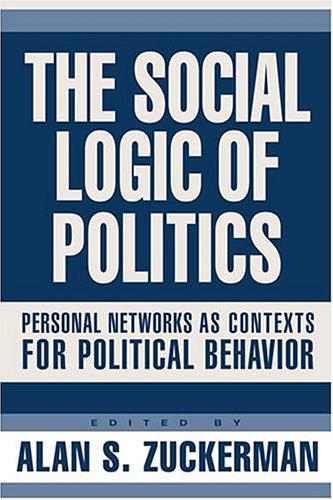

Most ebook files are in PDF format, so you can easily read them using various software such as Foxit Reader or directly on the Google Chrome browser.
Some ebook files are released by publishers in other formats such as .awz, .mobi, .epub, .fb2, etc. You may need to install specific software to read these formats on mobile/PC, such as Calibre.
Please read the tutorial at this link: https://ebookbell.com/faq
We offer FREE conversion to the popular formats you request; however, this may take some time. Therefore, right after payment, please email us, and we will try to provide the service as quickly as possible.
For some exceptional file formats or broken links (if any), please refrain from opening any disputes. Instead, email us first, and we will try to assist within a maximum of 6 hours.
EbookBell Team

4.4
72 reviews
ISBN 10: 1592131476
ISBN 13: 9781592131471
Author: Alan S. Zuckerman
Using classic theories and methodologies, this collection maintains that individuals make political choices by taking into account the views, preferences, evaluations, and actions of other people who comprise their social networks. These include family members, friends, neighbors, and workmates, among others. The volume re-establishes the research of the Columbia School of Electoral Sociology from several decades ago, and contrasts it with rational choice theory and the Michigan School of Electoral Analysis. Written by political scientists with a range of interests, this volume returns the social logic of politics to the heart of political science.
1 Returning to the Social Logic of Politics
2 Individuals, Dyads, and Networks:Autoregressive Patterns of Political Influence
I. FAMILIES AS SOURCES OF STRONG POLITICAL TIES
3 Political Similarity and Influence between Husbands and Wives
4 Do Couples Support the Same Political Parties? Sometimes: Evidence from British and German Househo
5 Family Ties: Understanding the Intergenerational Transmission of Political Participation
II. FRIENDS, WORKMATES, NEIGHBORS, AND POLITICALCONTEXTS: THE EFFECTS OF WEAK TIES ON ELECTORAL CHOI
6 Changing Class Locations and Partisanship in Germany
7 Choosing Alone? The Social Network Basis of Modern Political Choice
8 Friends and Politics: Linking Diverse Friendship Networks to Political Participation
9 Networks, Gender, and the Use of State Authority: Evidence from a Study of Arab Immigrants in Detr
10 Putting Voters in their Places: Local Context and Voting in England and Wales, 1997
11 Party Identification, Local Partisan Contexts, and the Acquisition of Participatory Attitudes
12 Macro-Politics and Micro-Behavior: Mainstream Politics and the Frequency of Political Discussion
III. THE SOCIAL LOGIC OF POLITICS: LOOKING AHEAD
13 Agent-Based Explanations for the Survival of Disagreement in Social Networks
14 Turnout in a Small World
the social psychology of power
according to network theory the power lies in the
social networks generate power through
social logic of politics
the social psychology network
Tags: Alan Zuckerman, Social, Logic, Politics, Personal